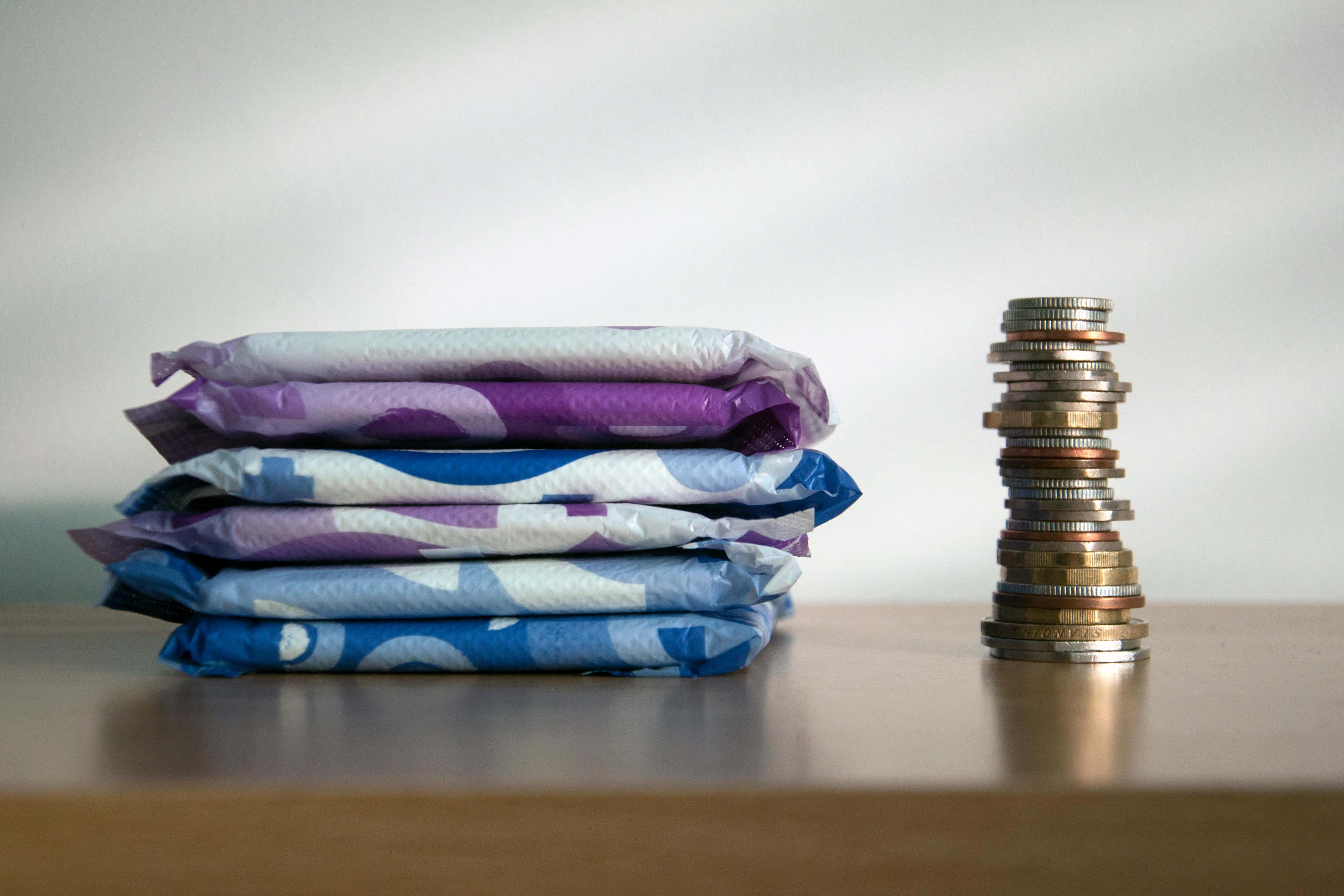Girls worried about being able to afford period products – survey
Some 21% of 11 to 21-year-olds revealed their fears about not having enough money for period products or period pain medication.

Your support helps us to tell the story
From reproductive rights to climate change to Big Tech, The Independent is on the ground when the story is developing. Whether it's investigating the financials of Elon Musk's pro-Trump PAC or producing our latest documentary, 'The A Word', which shines a light on the American women fighting for reproductive rights, we know how important it is to parse out the facts from the messaging.
At such a critical moment in US history, we need reporters on the ground. Your donation allows us to keep sending journalists to speak to both sides of the story.
The Independent is trusted by Americans across the entire political spectrum. And unlike many other quality news outlets, we choose not to lock Americans out of our reporting and analysis with paywalls. We believe quality journalism should be available to everyone, paid for by those who can afford it.
Your support makes all the difference.Cost-of-living concerns are taking a toll on young girls in the UK, according to research which suggests a fifth are worried about not having enough money for basic necessities like period products.
Longer-term fears such as debt, unemployment, high rents, university fees or ever owning their own home also feature in early findings from Girlguiding’s annual attitudes survey.
The charity – the UK’s largest youth organisation dedicated to girls – said the results of its polling of 2,614 girls and young women between February and April suggest the mental toll financial concerns are having at a time when they should be “looking to the future with hope and excitement”.
One in three seven to 10-year-olds said they try not to ask their parents for pocket money or to go on school trips, while 40% of all girls (aged seven to 21) said they have heard their parents or carers talk about the need to cut back on certain things to save money, the findings showed.
When it comes to basics, 21% of girls aged seven to 21 said they worry about their family not having enough food.
The same percentage of 11 to 21-year-olds revealed their concerns about not having enough money for period products or period pain medication.
Almost a quarter of girls living in areas of high deprivation were worried about their family not having enough food to eat, while 19% living in areas of low deprivation had that concern.
Girlguiding advocate Molly Smith, 20, said she was not surprised to learn that the cost-of-living crisis is creating “even more worries for girls”.
The mental toll the cost-of-living crisis is having on girls in the UK is concerning. Our research shows just how these worries impact their day-to-day lives, with girls concerned over access to basic necessities like food and period products
She said: “What really hit home for me was the negative outlook so many girls had about their future opportunities. It’s so sad to think that almost half of girls are spending less money on things they enjoy because they’re worried about money.”
Around 43% of those aged 11 to 21 said they spend less money on things they enjoy, such as travel, books and leisure activities, because of worries about money.
The survey results suggested this is more likely to be the case for disabled girls – 60% compared with 40% of girls who are not disabled.
Girlguiding chief executive Angela Salt said: “The mental toll the cost-of-living crisis is having on girls in the UK is concerning. Our research shows just how these worries impact their day-to-day lives, with girls concerned over access to basic necessities like food and period products.
“For the majority of girls, instead of looking to the future with hope and excitement, they fear debt, not being able to get a job, afford rent, university or ever owning their own home.”
For 11 to 21-year-olds, more than half fear not being able to afford to buy (59%) or rent their own home (50%), 40% worry they will not have enough money to go university, 55% worry they will not be able to get a job after leaving education, and more than a third (37%) fear getting into debt with credit or store cards.
The full survey results of the survey – supported by the People’s Postcode Lottery – will be released in September.
The research will explore how girls’ lives have changed in the 15 years since the first annual survey in 2009 and highlight the issues girls face now.